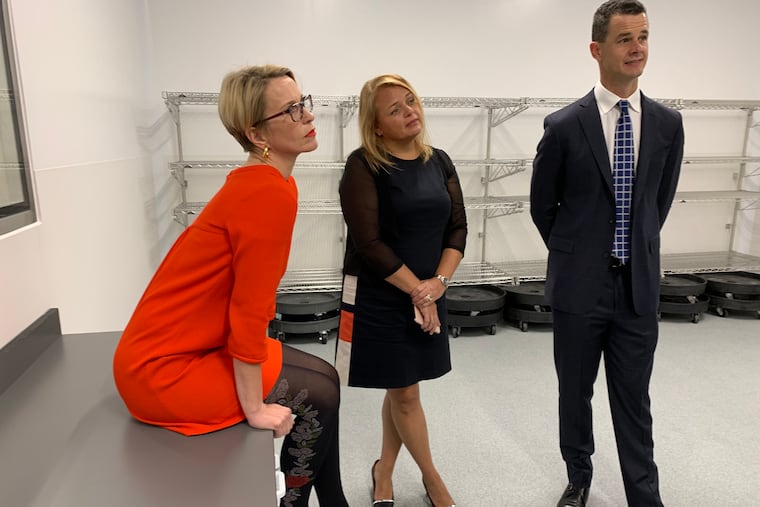GSK joins Sanofi effort to make coronavirus vaccine
The two pharma giants plan to start testing the vaccine in humans during the second half of the year.

Sanofi and GSK, two of the biggest names in vaccine development, are joining forces on creating a coronavirus vaccine, the companies announced Tuesday.
Sanofi launched the project in February; what’s new is GSK’s contribution of an adjuvant — a substance that is added to a vaccine to enhance people’s immune responses.
The goal is to start testing the vaccine in humans during the second half of this year, the companies said. If the results are promising and regulators give the go-ahead, the companies say they could finish developing the product by the second half of 2021.
Dozens of coronavirus vaccines are in development worldwide, including several that involve either Sanofi or GSK. Health officials generally agree that multiple vaccines will be needed to meet world demand.
At a news conference, GSK chief executive officer Emma Walmsley echoed that view.
“The world is working and collaborating as fast as it can to try and get to the best possible solution,” she said.
The U.S. hub of the London-based drugmaker is in Philadelphia, in the Navy Yard. Sanofi, which is based in Paris, has U.S. operations in Bridgewater, N.J.
Among other vaccines with ties to the Philadelphia region is one made by Plymouth Meeting-based Inovio Pharmaceuticals, which began human tests this month at the University of Pennsylvania’s Perelman School of Medicine.
All are proceeding on an accelerated schedule that is unheard for vaccine development, which traditionally takes more than a decade.
The Sanofi-GSK vaccine will consist of genetic instructions that teach the human immune system to mount a response against the virus, using an approach that Sanofi has used in other vaccines.
The instructions for defeating the coronavirus are loaded onto a different type of virus, one that cannot make people sick. Once injected, the genetic code would instruct human cells to make a harmless fragment of the coronavirus, which in turn would enable the immune system to develop customized antibodies should it ever encounter the real thing.
With the addition of the adjuvant, the vaccine is expected to be effective at lower doses, said Roger Connor, president of GSK’s vaccine unit.
“The smaller we can make that dose to be effective, that means our capacity is bigger and we can treat more people quickly,” he said.
In announcing the project in February, Sanofi said it was collaborating with the U.S. Biomedical Advanced Research and Development Authority.